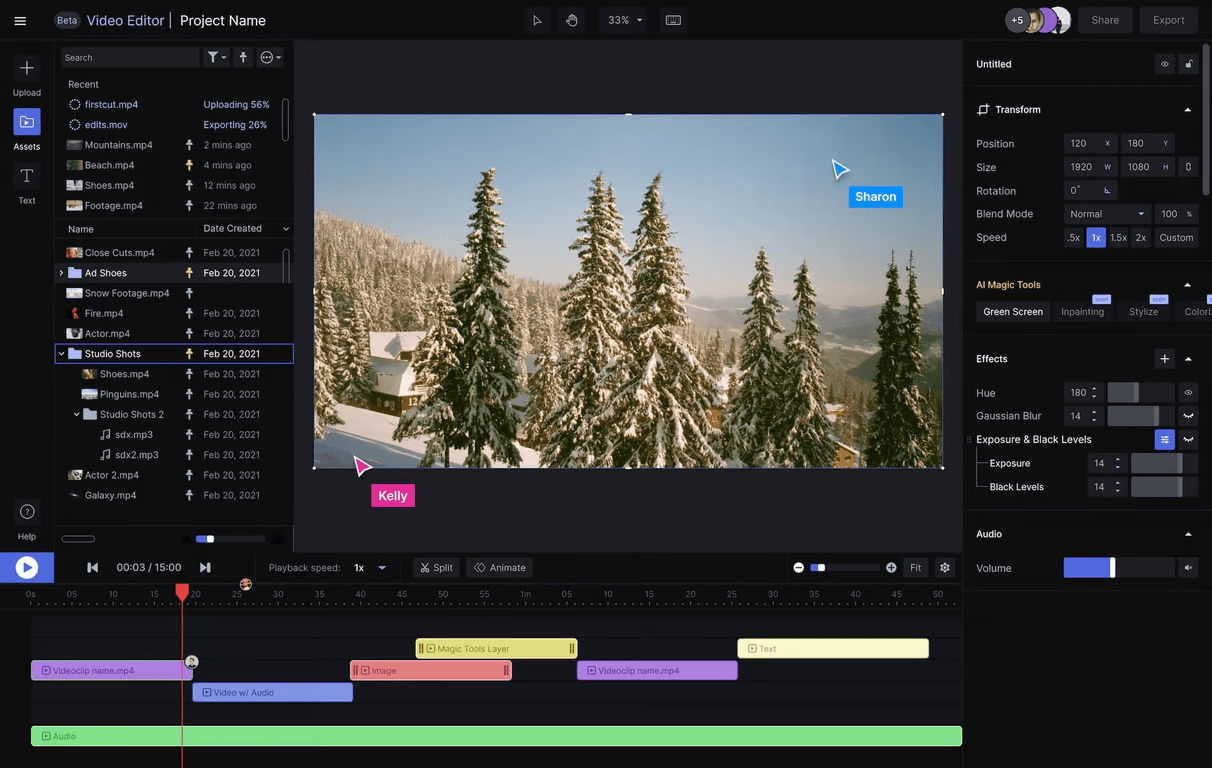Did you just move to a new country – one whose Government is a bit more strict and censors certain parts of the Internet (like Russia, China, or the UAE)?
If yes, you’ll be happy to know you don’t need to put up with the unfair censorship. A VPN is a great way to unblock websites in restrictive countries. We’ll show you how it does that in this article. Also, we’ll answer some relevant questions.

So Can VPNs Circumvent Government Censorship? If Yes, How?
Yes, VPNs are really goon anti-censorship tools. Our readers always tell us how they use VPNs in restrictive countries to unblock popular Western sites.
VPNs bypass censorship by acting as a middleman between you and the Internet. Normally, you go online using your ISP’s network which has firewalls that say your device (its IP address) can’t communicate with specific sites.
Well, with a VPN, you still use your ISP’s network, but you communicate with the Internet using a new IP address – one the VPN provides you with. Since that IP doesn’t have firewall rules assigned to it, it lets you freely access the Internet.
And that’s not all – the VPN also encrypts your traffic. Your ISP won’t be able to see what sites you access, so they won’t know you’re bypassing their firewall restrictions.
Do All VPNs Work in Restrictive Countries?
Not exactly. Only a few top VPNs consistently work in restrictive countries – like ExpressVPN, NordVPN, and Surfshark.
These VPNs mostly refresh their IPs very often to stop governments and ISPs from blocking them. Also, they use obfuscation (a security feature) to hide their VPN traffic to avoid blocks at the network traffic level.
Other VPNs work okay in restrictive countries too, but they’re not reliable. They might work on day, and get completely blocked the next day.
How Do Oppressive Governments Block VPNs?
It’s hard to give an accurate answer because it’s not like governments are open about this. But here’s a list of possible blocking methods we believe restrictive governments use:
- IP blocks – The governments force national ISPs to block VPN IP addresses with firewalls. We don’t know where they get the IPs from, though. To avoid this, VPNs have to refresh their IPs on a regular basis (get new IPs, essentially).
- DPI blocks – DPI (Deep Packet Inspection) is a network analysis method that lets ISPs identity VPN traffic (OpenVPN traffic, to be exact). Once they detect it, they can drop the VPN connection (so it won’t work). VPN providers bypass DPI blocks by using obfuscation (they make OpenVPN traffic look like normal Internet traffic to avoid detection).
- Port blocks – ISPs close ports which are used by VPN protocols (L2TP/IPSec, IKEv2/IPSec, PPTP) to prevent connections from being established. The easiest way to avoid this is to use OpenVPN which uses port 443 – the HTTPS port which can’t be blocked.
Can You Use a Free VPN to Bypass Government Censorship?
You can use one, but we can’t guarantee it will be efficient. While some free VPNs work in restrictive countries, they’re not very reliable.
Here’s the thing – free VPNs don’t refresh their IPs fast enough (they can’t afford to do it). So they end up being blocked more often.
Also, free VPNs don’t usually have obfuscation and force you to use VPN protocols whose ports can be blocked. What’s more, you might only be able to use PPTP, which is not safe to use (its encryption is very weak).
Besides that, free VPNs also have slow speeds and buggy apps, so they offer a very poor experience.
VPN Alternatives
Here’s a quick look at some alternatives you could use instead of a VPN:
Proxies
A proxy is nearly identical to a VPN – it lets you communicate with the web through a new IP to help you bypass firewalls.
However, proxies don’t usually have encryption. So your traffic will still be exposed (ISPs can see which sites you browse).
All in all, it’s safer to use a VPN. It’s better to encrypt your traffic to make sure your ISP and the government can’t spy on your traffic.
Tor
Tor is a free privacy tool that encrypts your traffic multiple times and hides your IP address. It’s designed specifically for bypassing government censorship. Since it’s free to use, it’s better than a VPN, right?
Well, not exactly. Many restrictive governments are actually able to block Tor connections very easily. What’s more, Tor isn’t very safe to use – it can actually leak your IP address!
On top of that, Tor is extremely slow. It only has around 6,000+ servers. And more than two million people use Tor on a regular basis. We usually see an average 95-99% speed decrease with Tor (with VPNs, we only see a 30-40% speed decrease). Waiting 20-30 seconds or more for a site to load is the norm.
Will You Get in Trouble for Bypassing Censorship?
It’s really hard to say – it depends on the country you moved to. If the law specifically says that you face huge fines or jail time for bypassing government censorship, you’re better off not using a VPN or some other unblocker.
But if there isn’t any punishment for doing that, then go ahead. If you’re worried your ISP will send you angry letters, just use a VPN with obfuscation to hide your VPN traffic.
How Do You Unblock Censored Sites?
Which unblocking methods do you use to access your favorite sites as an expat in a restrictive country? Please tell us about them in the comments. If you use a VPN, please tell us which one – oh, and don’t forget to mention why you like it so much.








